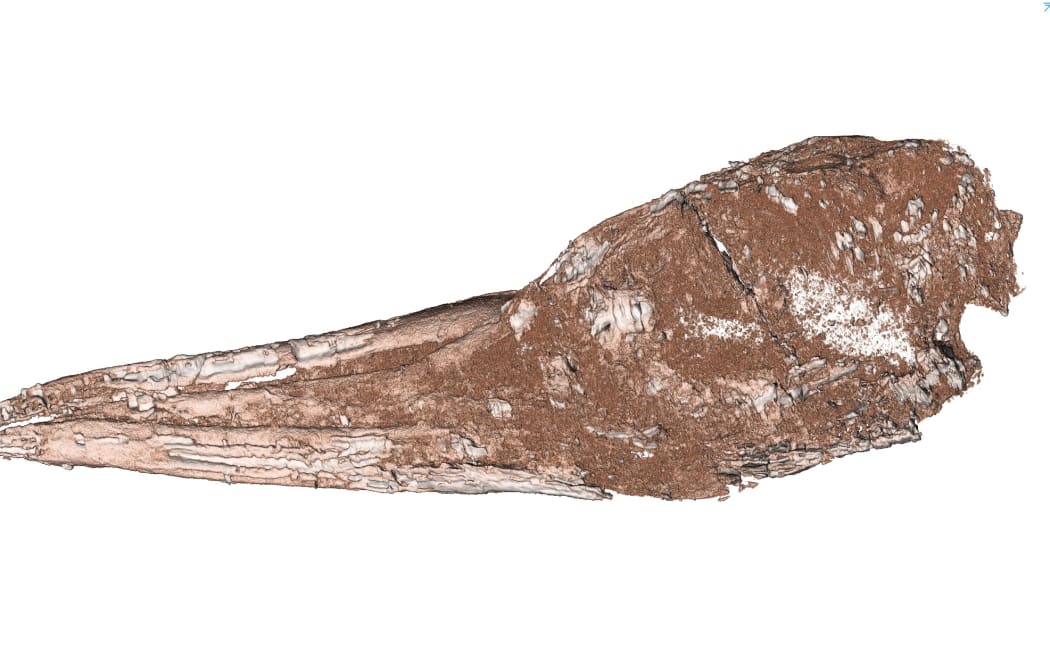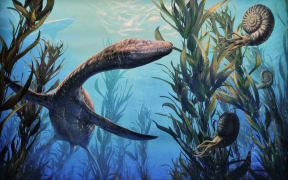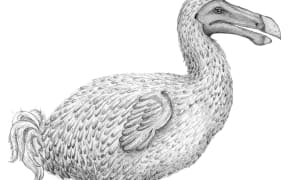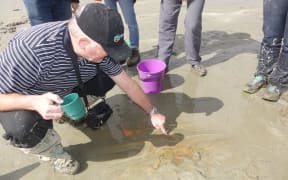
Fossil of the specimen, dubbed the Zealandian Tropicbird, or Clymenoptilon novaezealandicum. Photo: Canterbury Museum / Paul Scofield
A recently-discovered fossil suggests a group of sea birds originated in the waters around Zealandia, rather than in the Northern Hemisphere as previously thought.
The specimen, dubbed the Zealandian Tropicbird (Clymenoptilon novaezealandicum), is one of the first fossils of its kind to be found in the Southern Hemisphere and is believed to be about 62 million years old.
A team of palaeontologists from the University of Canterbury found the intact fossil in North Canterbury at the Waipara Greensand.
Researchers say its age and characteristics suggested tropicbirds might have originated in the Southern Hemisphere - up until now all other fossil species had been known from the Northern Hemisphere only.
Its features suggest it had different feeding/foraging habits from other tropicbirds, but it was not possible to get a full picture of its mode of life because it had no legs.
Along with a second smaller species of tropicbird, a fossil of a primitive bony-toothed bird, and several species of penguin, it indicated Zealandian shores were a hub for seabird diversification after the mass extinction of the dinosaurs 66 million years ago.
Leigh Love discovered the Zealandian Tropicbird and his then 10-year-old son, David, helped him retrieve it.
"He was 10 years old at the time and very keen to join me on some of my fossil hunting trips into the Waipara," Love said.
"On this occasion when we found the bones, he said he was both surprised and amazed that we had found a flying bird. For me, it has been great watching a child's face light up as a result of finding rare creatures preserved from our distant past."
University of Canterbury research associate Vanesa de Pietri, who co-authored the paper on the research, said fossils from the Waipara Greensand area had shown Zealandian shores played a key role in the early evolutionary history of many seabirds.
"Worldwide, the fossil record of birds this age is poor, which makes these Canterbury finds so significant in understanding what was happening with birds during the first 5 million years following the extinction of the dinosaurs."
Canterbury Museum senior curator natural history Paul Scofield, also co-author of the paper, said the nearest relatives of the new species were found in the deserts of Morocco, which showed tropicbirds were a widespread group between 60 and 40 million years ago.




